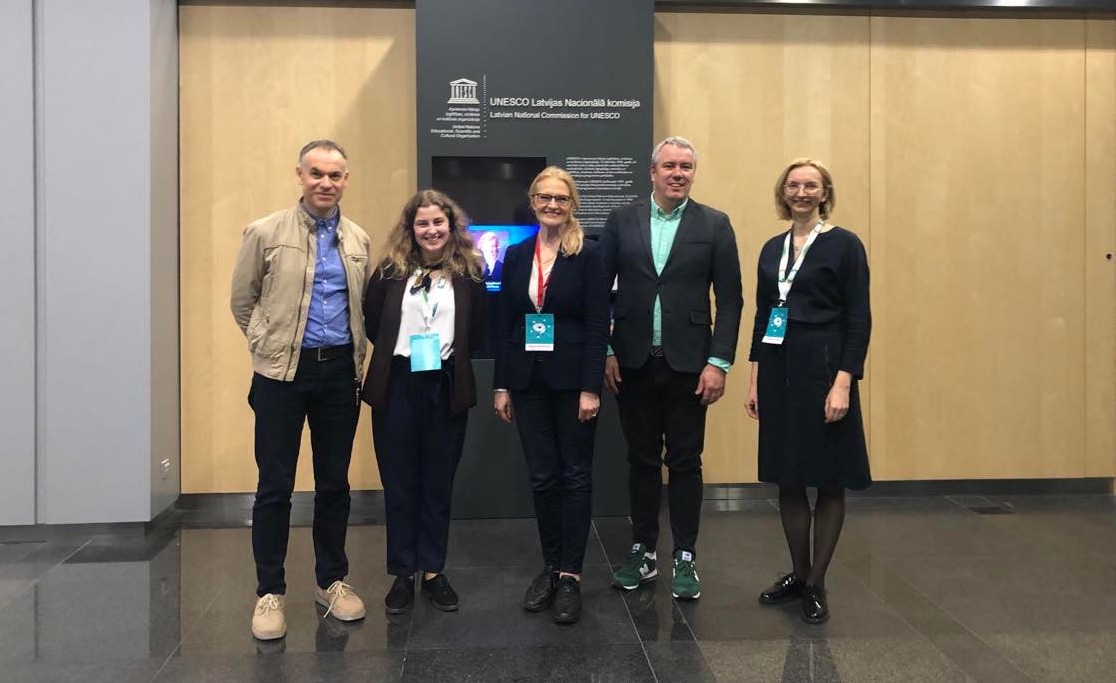 Back
Back

At the conference “Media Literacy in the Baltics: Showcasing Achievements and Charting a Path Forward”, held in Riga, the head and chief researcher of the association DIGIRES professor Auksė Balčytienė, together with her colleagues, professor Kirstina Juraitė and junior researcher Rimgailė Kasparaitė, as well as several students of the Department of Public Communication of VMU presented the intersectoral cooperation model applied by the DIGIRES and shared the experience, achievements and recommendations for future trainings.
According to researchers prof. A. Balčytienė and prof. K. Juraitė, media literacy is a lifetime project. It is the competence of multiliteracy, for which technological and civic education are important to develop. The skills of critical thinking, media literacy and resistance to disinformation are needed not only for future communication specialists and journalists – they are no less important for ordinary citizens and active users of information.
During presentation “Intersectoral collaboration for digital resilience” junior researcher R. Kasparaitė aimed to show that Lithuania has relevant knowledge, resources and opportunities to counter the challenges of disinformation, but due to insufficient cooperation between different actors, government institutions, non-governmental organizations, journalists and citizens there is a high fragmentation. According to the speaker, the society that is not immune to various informational threats is the most affected by this fragmentation. As a solution, researchers therefore suggest intersectoral collaboration and governance to help build resilience and sustainable organizations.

“DIGIRES is the first example of cooperation in the field of digital resilience not only in Lithuania, but also in the Baltic States. The beginning of the DIGIRES association is a joint project between academics, regional media and non-governmental organizations, developing the idea of resilience as a dynamic process of cooperation between interested parties,” said R. Kasparaitė.
During the conference, students presented ways to promote media literacy and digital resilience. They also had interesting and engaging training “Geolocation Challenge” (led by Atlantic Council Digital Forensic Research Lab researcher Nika Aleksejeva) and the opportunity to test important information and fact-checking techniques as well as media literacy strategies.
More information here